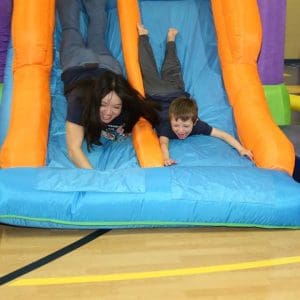
North East ISD’s Buddy Blizzard
At North East ISD, they let kids be kids. That’s one of the goals of Encino Park Elementary School’s Buddy Blizzard. The Alternative Learning Environment

* Campaign (Go Public)

Find Texas Schools and Independent School Districts
Special Education is a general term used to describe the law’s requirement of specially designed curriculum for children with disabilities. These services are provided by public schools and are free of charge.
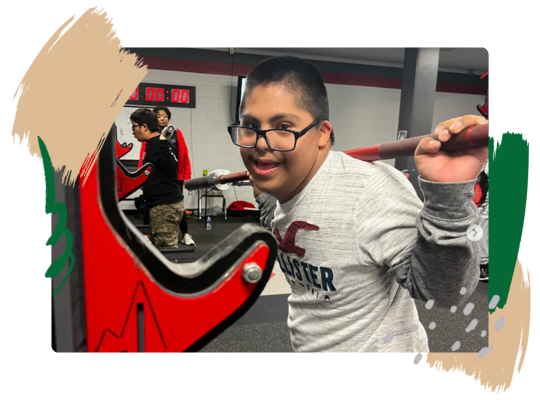
A member of the Judson ISD Special Olympics team lifts weights.
According to Education Week, the number of students in special education courses has increased over the past decade.
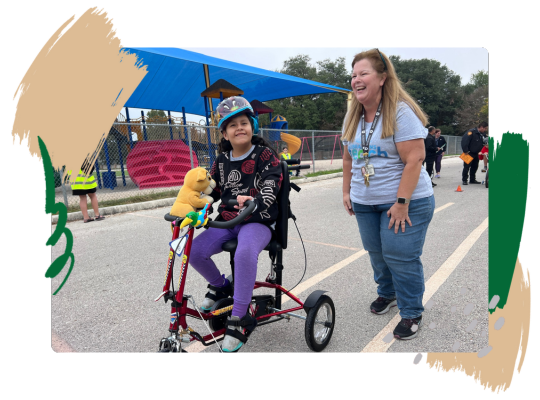
An NEISD student uses an adaptive PE bike.
Federal law defines an individual with a disability as a person who has a physical or mental impairment that limits one or more critical life activities. The Individuals with Disabilities Education Act (or IDEA) legislation ensures that students with a disability are given Free Appropriate Public Education (FAPE) tailored to their specific needs.
In the Rehabilitation Act of 1973, Section 504, discrimination based on disability is prohibited, and the requirements of students with disabilities must be met just as the needs of non-disabled students are met. Some children can be covered for services under Section 504 who do not meet the IDEA criteria, as Section 504 includes a broader definition of disability than that of IDEA.
Some conditions that qualify as disabilities include dyslexia, epilepsy, heart disease, specific learning disabilities, autism, diabetes, allergies, low vision, poor hearing, or chronic illnesses.
Special needs are defined as physical, emotional, behavioral, or learning disability or impairment that requires special services or accommodations. It’s a more generalized term. However, when it comes to federal law and the rights of a child to receive an education, the term disability is used.

At North East ISD, they let kids be kids. That’s one of the goals of Encino Park Elementary School’s Buddy Blizzard. The Alternative Learning Environment

Gratitude to the Harlandale ISD Special Education Department for fostering inclusivity through a spirited Special Olympics flag football game, uniting middle school students in friendly
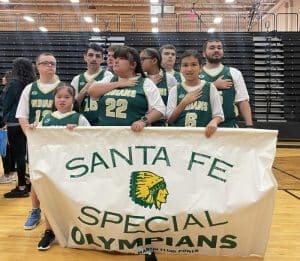
Santa Fe ISD’s Special Olympic athletes traveled to Alvin to compete in their Area basketball tournament. Santa Fe players did an amazing job competing and
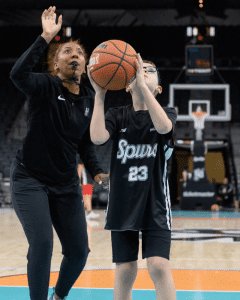
The Judson ISD Special Olympics team, the Thunder-Rockets, had many accomplishments this past year. Amy Paul works for Judson ISD as a District Adaptive PE

Edgewood ISD Installs Wheelchair Swings F.D. Roosevelt Elementary School students soar! An Edgewood ISD innovation grant provided brand new wheelchair swings on campus. All students
© Copyright 2023 – We Go Public – All Rights Reserved

If you want to take advantage of this benefit or learn more about how a membership can help your organization please click the button below.